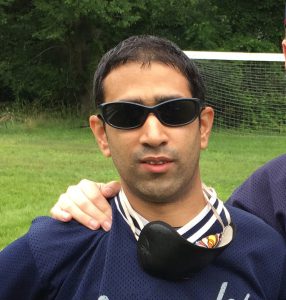Aqil Sajjad

Aqil Sajjad has a PhD in theoretical particle physics from Harvard University and has recently joined the College of Optical Science in order to work on quantum information theory. He is currently engaged in several research projects related to quantum sensing techniques and quantum entanglement in many-body systems.
Research:
Keywords: Quantum Sensing, Quantum Networks
Quantum information theory provides us with some very powerful tools for determining how well we can estimate an unknown parameter by measuring a relevant physical system. It also allows us to determine which measurement to make in order to get the best possible estimate allowed by theory. Using some of these techniques, I am working on how we can estimate the location of an object optimally.
One very common technique in astronomy is the so-called Very-Long Baseline Interferometry (VLBI). In this approach, the radio wave signal from an astronomical object is collected at different locations on Earth and combined. The result is to nearly reach the performance of a large telescope whose size is equal to the maximum distance between the various individual telescopes. This way, if we have two telescopes on opposite sides of the Earth, we can obtain an effective apperture equal to the Earth’s diameter. I am using quantum estimation theory techniques in order to investigate what is the optimal arrangement of a collection of several telescopes in VLBI.
One important problem in quantum information theory is to study how quantum entanglement evolves over time in a many-body system or circuit. Some studies have shown that entanglement in fermionic many-body circuits can be understood in terms of a diffusion equation. I am investigating the same problem for a bosonic system since this subject has not received enough attention in the literature thus far. This will allow a better understanding of the evolution of entanglement between photons bouncing around in a quantum circuit.

